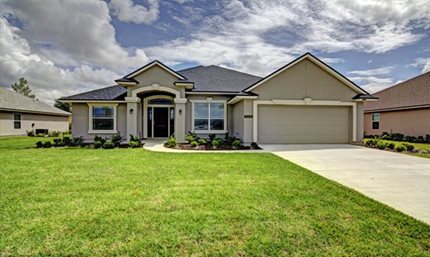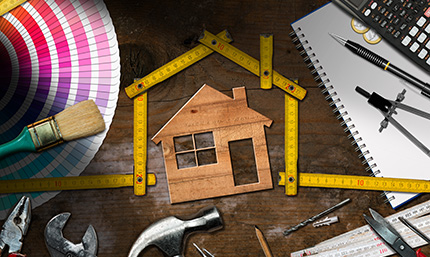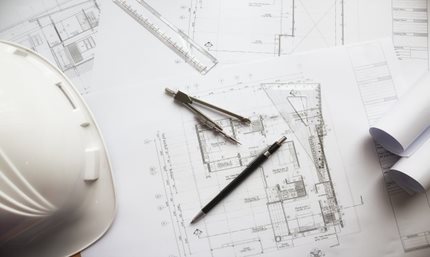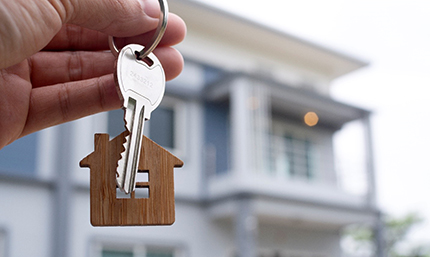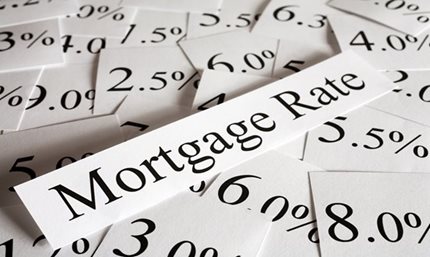News & Tips
Buying a House with Little to No Money Down in Florida

If you’re wondering if you can buy a house with no money down, the good news is that yes, as long as you meet the qualifications, you can! Perhaps saving up for a down payment just isn’t in the cards any time soon, or you’re tired of renting. The question is which type of no- or low-money-down home loan makes sense for your situation—and this article will describe and guide you through options available in Florida.
At a high level, the three loan types in this article include:
● Conventional mortgage loans
● FHA loans
● VA home loans
We’ll walk you through each of them in more depth.
Quick Look at Down Payments
When someone makes a large purchase—such as buying a car or home—the borrower pays a portion of the price upfront in a lump sum—the down payment. Then, the borrower finances the rest with a lender. Traditionally, people would put 20% down on a home loan, but lenders and regulations have loosened up more over the years so that today this isn’t a requirement to get a home, and many home loan options are available that bypass that necessity.
Benefits of putting a large payment down:
- It creates a lower principal and interest payment, which typically means that the borrower pays less interest over the life of the loan.
- Lenders may offer a lower interest rate with a bigger down payment; although this isn’t always the case.
- Borrowers often have to pay private mortgage insurance (PMI) when their down payment is less than 20%. So, by making a 20% down payment, you’re less likely to have to pay for PMI.
On the other hand, plenty of benefits exist for making a smaller down payment or buying a home with no money down. These benefits include:
- Allows homebuyers to move into a home sooner. Saving up money for a down payment can be challenging for some borrowers, and no-money-down mortgages mean they don’t have to wait. This may be especially helpful for first-time homebuyers.
- Allows homebuyers to use the saved funds towards other things such as moving costs, repairs, furniture, and renovations or as emergency fund.
Here's more information that helps break down how much is enough for a down payment.
Conventional Mortgage Loans
A conventional mortgage loan is one that isn’t backed by the government. Not all conventional lenders offer no-money-down home loans, but Space Coast Credit Union (SCCU) does. If getting a loan without a down payment is important to you, make sure that the lenders you’re considering have that program and compare the following:
- Current interest rates and annual percentage rates (APRs) specific to the no-money-down loan
- Types of loans available that don’t require a down payment. For example, if you’re looking for a conventional fixed-rate loan.
- Principal and interest payments at the terms available (often 15, 20, and 30 years)
- Closing costs: Even with a no-down-payment mortgage, you could still be responsible for covering the extraneous costs to buy a home—things such as inspection, appraisal, title insurance, as well as prepaid reserves for insurance and taxes. On average, closing costs are about 2.58% of the home’s purchase price in Florida for buyers (some costs are negotiable).
Lenders often base interest rates on your credit scores. Plenty of sites provide credit score information to consumers, either for free or for a fee. Each of the credit scores are based on what’s listed in your credit reports from the three major agencies. You can get a free copy of each of your credit reports (but not your scores) annually at AnnualCreditReport.com. If you find any errors, contact each of the credit agencies that list faulty information and ask for a correction. This can help boost your credit scores. In general, according to the credit bureau Experian, conventional loan lenders typically want a minimum FICO® Score of about 620 out of 850.
At SCCU, buying a home with no money down56 comes with the following conventional home loan options:
- Fixed-rate loans (single-family home)
- Select 5/1 adjustable-rate loans22 (single-family home)
- Terms up to 30 years
- Application fees: none
- Pre-payment penalties: none
- Intangible tax: none21
- Origination fee: $1,100 + .25% of loan amount
Other closing costs to budget for will include home inspections, taxes, and prepaid insurance. Your lender will give you a breakdown of your estimated costs.
| Term | Rate "As Low As" | APR* "As Low As" | Example Loan Amount | Example Monthly Payment |
|---|---|---|---|---|
| 10 Years | 5.750% | 5.953% | $300,000 | $3,293.08 |
| 15 Years | 5.875% | 6.019% | $300,000 | $2,511.36 |
| 20 Years | 6.750% | 6.868% | $300,000 | $2,281.09 |
| 30 Years | 6.750% | 6.840% | $300,000 | $1,945.79 |
Example monthly payments do not include taxes and insurance, and the actual payment obligation will be greater.
Rates based on creditworthiness.
100% FINANCING: Certain restrictions apply. Available on select single-family purchase home loans; not available on refinance. Must be primary residence. 100% financing of verified property value at time of financing. Subject to program creditworthiness criteria, credit approval, verification, and collateral evaluation. At loan closing, borrower responsible for funds to cover prepaid reserves and closing costs such as inspections, appraisals, title insurance, etc. Gift funds not permitted. Private mortgage insurance required. Monthly payments do not include taxes and insurance; the actual payment obligation will be greater.
Mortgage Pre-Qualification
To streamline the process, you can request a mortgage pre-qualification, which will allow you to house hunt within your budget, saving you time and frustration. Plus, you can assure sellers that you’ve been pre-approved for the necessary dollar amount.
When you get pre-approved, it’s a step beyond a pre-qualification—and it’s an important step. Before a lender provides you with a pre-qualified amount for a home loan, they’ll check your credit scores, which lets you know more specifically what you’re well positioned to buy.
If you’re ready to apply for a pre-qualification at SCCU, you’ll just need to have a few pieces of information at hand. They include the following:
✔ Identification, which can include your driver’s license/passport
✔ Two recent pay stubs/W-2s/tax returns
✔ Last two bank statements
Conventional lenders will have different loan requirements. At SCCU, our guidelines include these:
- Credit score of 620 or above
- Record of making your payments on time
- Good debt-to-income (DTI) ratio (45% or lower)
Consider calculating your own DTI to get a sense of where you stand. Here are the steps:
- Add up the amounts of your monthly debt payments.
- These can include your mortgage/rent, car payments, personal loan payments, credits cards, student loans, and so forth.
- Determine your monthly income—pre-tax (your gross income).
- Divide the total monthly debt amount by your monthly income.
- The result is a percentage.
- If you know what percentage your lender requires (it may be something like 36%), then you’ll have a sense of your financial picture.
You’ll also need to know how the monthly payment on your new home will affect your DTI. Here’s a quick and easy way to estimate your principal and interest payment.
A Note about First-Time Homebuyers
First-time homebuyers may gravitate towards no-money-down home loans because they can’t use the equity built up in their current home to make a down payment. Fortunately, the state of Florida offers plenty of programs to help first-time homebuyers.
FHA Loans
With FHA loans, down payments can be as small at 3.5%, allowing qualified borrowers to finance up to 96.5%16. Although that isn’t the same as a no-money-down mortgage, it’s still much more doable than saving up 20%.
This type of loan is offered by certain FHA-approved lenders, including SCCU, with the Federal Housing Administration backing lenders when borrowers default. In fact, the FHA is the largest mortgage insurer in the world with nearly eight million single-family homes having an FHA mortgage. Said another way, the FHA insures loans but doesn’t directly lend the funds. So, to investigate getting an FHA loan, see a qualified lender, such as SCCU.
Certain types of properties won’t qualify for an FHA loan, such as the following:
- An investment where you plan to rent the home to someone else; it must be owner occupied
- A home you plan to “flip”; so, you can’t buy a home through FHA lending within three months of a previous sale
This property MUST:
- Be the main residence of at least one borrower within 60 days of the FHA loan’s closing
- Have your name on the property title
- Meet property standards, verified by an FHA appraiser during the home inspection
Finally, the property can be a multi-unit one as long as one or more borrowers live in one of the units.
FHA loans can be made to buyers across the range of incomes, from low to high, as long as the borrowers have enough steady income to afford the loan. Just as with conventional mortgage loans, FHA loans require a certain DTI with current requirements being at 50% or less. Just like with conventional mortgage loans, individual lenders can have different requirements, so check with your lender of choice and compare options.
Additional issues to consider with FHA loans include these:
- How much you can borrow, max, on an FHA loan varies by county based on the home prices in your area; limits can change annually with recent ones being:
- $314,000 in lower-cost counties
- $726,000 in counties where homes are more expensive
- Credit scores typically need to be at least 500 with a score of at 580 usually needed to qualify for the lowest down payment. In general, the better your credit score, the lower the FHA requirement for your down payment would be.
- The home must be appraised and inspected, with the property meeting minimum FHA standards for structural soundness. FHA inspectors can be stringent in what they require; so homes that need significant repairs might not qualify for FHA financing.
- Borrowers must pay an upfront mortgage insurance premium at all once in cash at closing time or have it financed into the loan amount. It’s a one-time payment that is 1.75% of the base loan amount and is non-refundable.
- Borrowers who have recently filed for bankruptcy or foreclosure won’t qualify. There is a two-year waiting period after bankruptcy and three years after a foreclosure. Borrowers may not qualify if delinquent on federal taxes or other debts.
FHA loans at SCCU come with down payments as low as 3.5%16, with gifts and alternate funds being acceptable. Borrowers can qualify with lower credit scores, and SCCU offers more relaxed DTI ratios. Terms are available for up to 30 years with a $1,100+.25% of loan amount origination fee and no application fees, pre-payment penalties, or intangible taxes21. Learn more about Florida FHA loan requirements here.
VA Home Loans
The Department of Veterans Affairs guarantees mortgage loans for qualified buyers, making this program available to United States veterans, active duty service members, and widowed military spouses. Similar to FHA loans, the VA does not directly provide funding but backs the borrowers to provide lenders protection against default. Instead, qualified borrowers can get mortgage loans from participating lenders, including SCCU.
To qualify for VA home loans, the borrower must meet at least one of these conditions:
- 90 consecutive days of active service during wartime or 181 days of active service during peacetime
- More than six years of National Guard or Reserves service
- Spouse of a service member who passed away in the line of duty or because of a service-related disability
VA home loans are typically no-money-down home loans because no down payment is required when the sales price isn’t greater than the home’s appraised value. So, buying a house with no money down can be quite doable.
Benefits of VA home loans are numerous, and for people who qualify, it’s probably the best way to finance your house.
Besides being a no-money-down mortgage, these loans:
- Typically have lower interest rates
- Can come with higher DTI ratios
- Don’t require Private Mortgage Insurance (PMI)
- Come with more relaxed credit score requirements; usually a 620 FICO® score is required but, at SCCU, all eligible homebuyers can get the same favorable interest rates no matter the score
- Can be assumable if the other party qualifies
- Don’t have pre-payment penalties
Some closing costs, such as attorney fees and settlement charges—are prohibited. Plus, although first-time homebuyers can qualify, the property doesn’t have to be the borrower’s first house. Once a VA mortgage has been paid off, the eligible service member (or family member) can reuse the VA home loan benefit.
Not all lenders are VA approved. At SCCU, we truly value our service members, starting out as a credit union serving Patrick Air Force Base. So, with our VA home loans, we offer competitive rates and up to 100% loan to value (meaning, no down payment).66 Terms are up to 30 years with an origination fee of $1,100 plus .25% of the loan amount and no application fee, pre-payment penalty, or intangible tax18.
In addition to VA loans, SCCU offers an affordable housing program to help cover your down payment and closing costs. We also have other low-cost home loan options for community heroes. Learn more about our Home Hero Loan options here.
| Term | Rate "As Low As" | APR* "As Low As" | Example Loan Amount | Example Monthly Payment |
|---|---|---|---|---|
| 15 Years | 5.500% | 5.642% | $300,000 | $2,451.25 |
| 30 Years | 6.250% | 6.337% | $300,000 | $1,847.15 |
Example monthly payments do not include taxes and insurance, and the actual payment obligation will be greater.
Rates based on creditworthiness. VA Home Loans are available to eligible service members, veterans and surviving spouses. Up to 100% financing is available. At closing, member will be responsible for any closing costs, prepaid escrow reserves, and any optional discount points.
HOME LOANS: Mortgage loans are originated by Space Coast Credit Union and are subject to credit approval, verification and collateral evaluation. Programs, offers, rates, terms, and conditions are subject to change or cancellation without notice. Certain restrictions apply. Taxes and insurance not included; your actual payment obligation will be higher.
These mortgage loan programs constitute first mortgage liens secured by the home and property. Your down payment is determined by the Loan-to-Value ratio. (90% LTV = 10% down payment) Loans exceeding 80% of the appraised value of the home require private mortgage insurance. Member responsible for any funds needed for closing costs and pre-paid escrow.
Apply for Your No (or Low) Down Payment Loan
Whether you’re interested in a conventional loan, an FHA loan, or a VA loan, we look forward to serving you! You can compare mortgage loans at SCCU here. If you have any questions, feel free to request more info, schedule an appointment at one of our 65 convenient branches, or get in touch with us.






